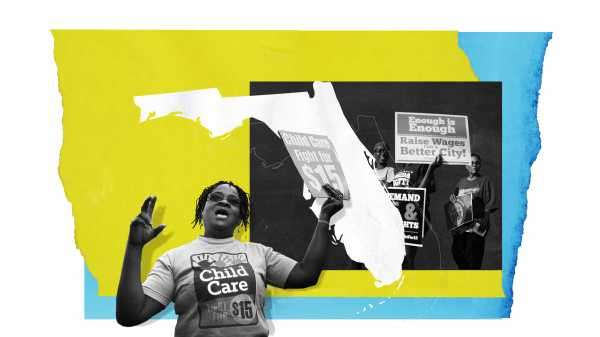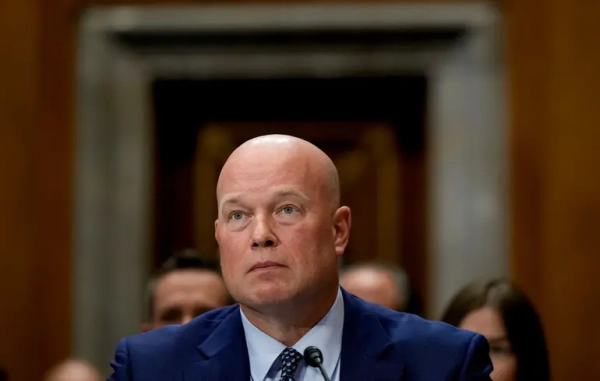
Florida voters have said yes to increasing the state’s minimum wage to $15.
They did so by approving Amendment 2, which increases the state’s minimum wage from $8.56 to $15 by September 30, 2026, according to the New York Times and the Associated Press. The change is incremental, with employers being asked to increase wages, essentially, by $1 a year. The amendment also specifies that as of September 30, 2027, Florida must adjust its state minimum wage based on the Consumer Price Index for Urban Wage Earners and Clerical Workers (CPI-W), meaning wages will be adjusted up or down as consumer prices change. The same measure is used to calculate changes in Social Security benefits.
The move toward a $15 minimum wage has gained steam across the country in recent years and is now part of the Democratic Party’s platform. Currently, the federal minimum wage is $7.25, but 29 states and Washington, DC, have a higher floor.
Florida’s yes vote on Amendment 2 makes it the first state in the South and the eighth state in the country to raise its minimum wage to $15. According to Fight for $15, a group that advocates on behalf of a $15 minimum wage, Virginia is the only southern state that has increased its minimum wage recently, but to $12, not $15.
The lead-up to Florida’s vote was a somewhat contentious one. Fast-food workers in Tampa, Orlando, and Miami went on strike in support of the ballot measure’s passage. The editorial boards of the Miami Herald, the Orlando Sentinel, and the Palm Beach Post, among others, endorsed the measure. However, some business associations and lobbyists opposed it, arguing that paying workers more would mean higher costs, which would ultimately be passed on to consumers — and by arguing that a minimum wage increase would result in job losses.
Related
Live results: Florida considers a $15 minimum wage
The last time Florida residents voted on a minimum wage measure was in 2004, when they voted in favor of increasing it to $6.15, and then subsequently increasing it based on changes in the CPI-W.
This is a big deal for a lot of workers — many of whom were suddenly deemed “essential” this year
The left-leaning Florida Policy Institute estimates that Amendment 2’s passage will result in a wage increase for 2.5 million workers in Florida — in other words, it’s likely to make a big impact on people’s lives.
It is important to note the context around this ballot measure: the Covid-19 pandemic. Low-wage workers have been slammed by the outbreak: Millions lost their jobs at the start of the pandemic as parts of the economy were shuttered. Millions more were deemed “essential” and told to keep going to work, often putting their health at risk for meager pay.
In Florida, specifically, out-of-work individuals had to contend with the state’s deeply flawed unemployment insurance system that was supposed to help them stay afloat. Passing Amendment 2 seems like a fair way to acknowledge that those workers deserve more, and that they matter.
The conversation behind a $15 minimum wage is a complicated one. While it would obviously lead to people being paid more, some business owners and politicians worry that it could cost jobs. A 2019 study from the Congressional Budget Office estimated that a federal $15 minimum wage would lift 1.3 million people out of poverty, but also cost the same amount of jobs. (Other economic studies have suggested the job loss risk is not that big.)
One of the problems with projecting the impact of a $15 minimum wage is that not enough places have implemented it to see how it works in practice. Now, Florida will be another case study.
Will you help keep Vox free for all?
The United States is in the middle of one of the most consequential presidential elections of our lifetimes. It’s essential that all Americans are able to access clear, concise information on what the outcome of the election could mean for their lives, and the lives of their families and communities. That is our mission at Vox. But our distinctive brand of explanatory journalism takes resources. Even when the economy and the news advertising market recovers, your support will be a critical part of sustaining our resource-intensive work. If you have already contributed, thank you. If you haven’t, please consider helping everyone understand this presidential election: Contribute today from as little as $3.
Sourse: vox.com






